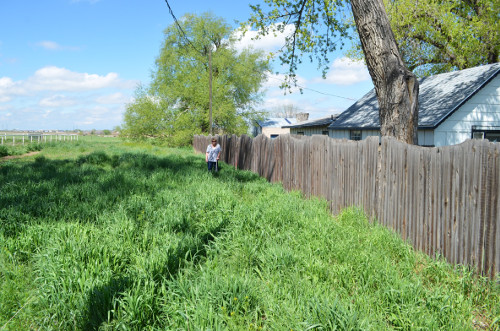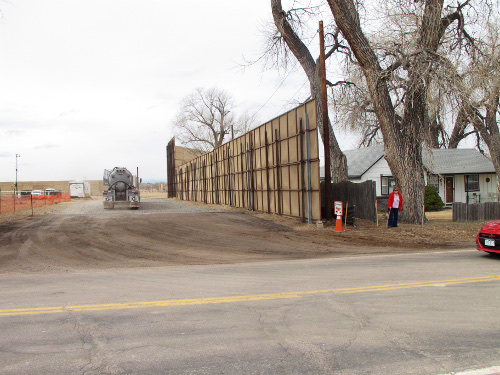Environmental Law Clinic Fall 2017 Updates
Reflections on Oral Advocacy in the Environmental Law Clinic
Graduate Fellow Timothy Estep with contributions from Erica Montague, 2L and Travis Parker, 2L
On October 12, 2017, Environmental Law Clinic Students Travis Parker and Erica Montague, both second-year students at the Sturm College of Law, argued in Denver City and County District Court on behalf of a neighborhood group in Greeley claiming that a state agency was failing to follow its regulations when approving large oil and gas development projects in residential communities.
The lawsuit, Neighbors Affected by Triple Creek v. Colorado Oil and Gas Conservation Commission, filed in November 2016, is the first challenge to an approval of an oil and gas development subject to the Commission’s new Large Urban Mitigation Area regulations. Over the 11 months following the filing of the Neighbors’ complaint, ELC Student Attorneys filed briefs on the merits of the lawsuit’s three claims and successfully prevented the Commission and Industry-Intervenors from relying on documents outside of the administrative record to provide a post-hoc rationalization—an after-the-fact justification—for the Commission’s approval of the 22-well development in the middle of multiple residential developments in western Greeley.
Dawn standing in the pasture during March 2016 before the access road was constructed.
On August 23, 2017—Travis and Erica’s second week in the Clinic—District Court Judge Jay S. Grant unexpectedly issued a partial order in the case. While he ruled against the Neighbors on one claim, Judge Grant determined that the Commission violated the State APA by failing to adequately explain why it would not require best management practices and mitigation measures suggested by the Neighbors. These practices and measures would have reduced health and safety impacts on residents living nearby the development. Finally, Judge Grant also directed the parties to set oral arguments on the third claim.
Seeking to extend the Clinic’s earlier successes, and calling it “great motivation” to quickly get up to speed on the case, Erica and Travis began preparing to argue that the Commission unlawfully approved an access road for the oil and gas development just 30 feet from Neighbor Dawn Stein’s bedroom window.
Over the next month and a half, Travis and Erica pored over the Commission’s regulations and the administrative record developing their theory of the claim and determining the clearest way to assist the court in understanding timelines and numerous inconsistencies between over a dozen maps. While Travis was surprised at how much their presentations were tweaked and adjusted based on feedback from their supervisors and colleagues in the Clinic, the Student Attorneys appreciated having considerable autonomy of developing their arguments. Though their supervisors’ expectations were high, “we felt safe because we could also seek their guidance,” Erica said.
All of their preparation not only helped Travis and Erica bridge the gap from students to attorneys, it allowed them to knock it out of the park when their clients’ day in court finally came. Travis argued first, walking the court through the primary issue—whether or not there was existing access to the oil and gas development in the location where the access road was constructed. He did not recall being very nervous once the hearing commenced, stating that it felt good to be up there making his points. After the Assistant Attorney General argued the Commission’s position, Erica took the podium, carefully rebutting each of the agency’s major points and responding to additional questions from Judge Grant.
Reflecting back on the arguments, both Erica and Travis had even more appreciation for the experience. They felt that their case was made better by having Judge Grant presiding, as he gave his full attention to the issues and arguments. The students also noted that, though the parties argued vigorously before the court, they were glad to see the collegiality with opposing counsel. A few even provided good feedback on the students’ performance and remarked that they wished they could have had a similar experience during law school.
While a ruling on the third claim and final decision is still pending in the lawsuit, Judge Grant’s August 23 ruling on best management practices and mitigation measures represents the first successful challenge to the permitting of an oil and gas development in close proximity to a community in Colorado. Travis and Erica’s hard work gave their clients the best opportunity to win on the access road issue, as well. Further, their arguments will help set the stage for other communities threatened by the incursion of industrial-scale oil and gas development and all the negative health and safety impacts it brings.
Dawn standing in front of her house in February 2017 after the construction of the access road.




